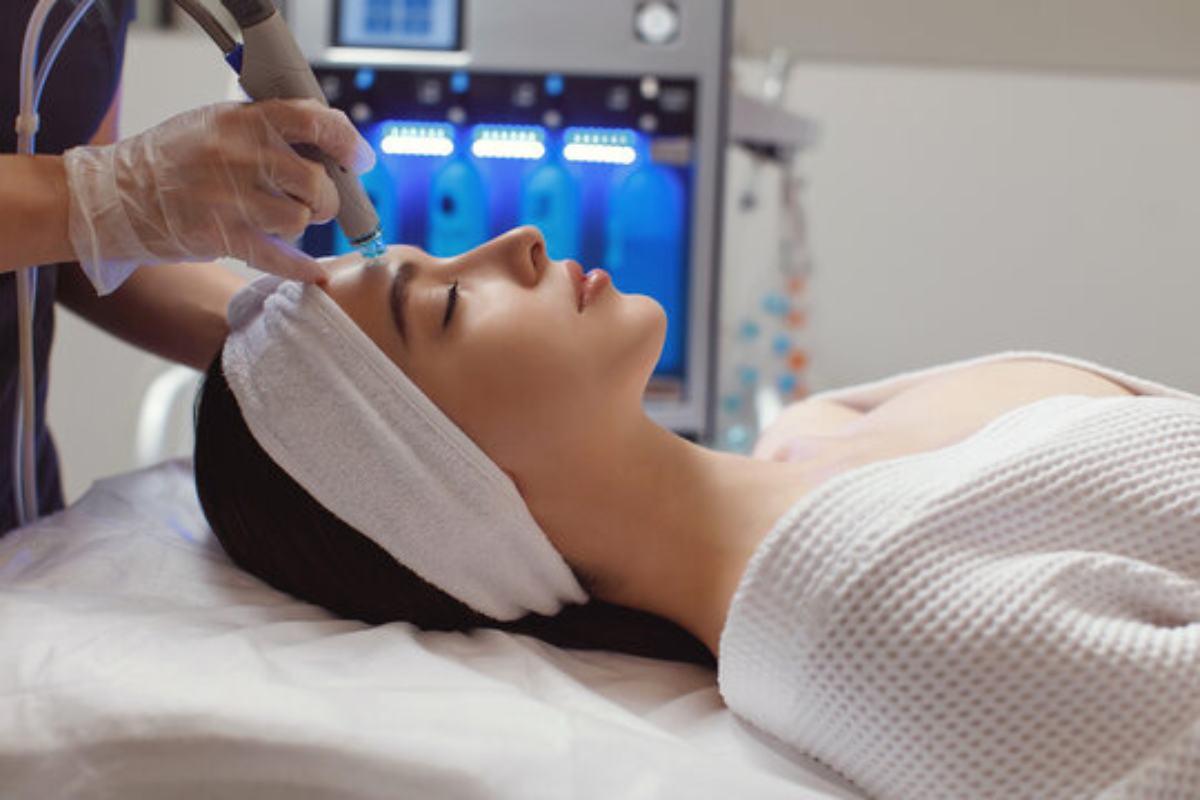How technology is seeping into the future of the beauty industry?: The beauty industry is undergoing a significant transformation, blending the art of cosmetics with the precision of technology. With the integration of data science certification, computer science, and the skills of a full stack developer, the beauty industry is embracing digital innovation like never before. In this blog, we will explore how these fields are merging with beauty, enhancing both consumer experiences and business operations.
Table of Contents
Augmented Reality and Virtual Try-Ons: A Digital Touch
In the realm of beauty, augmented reality (AR) and virtual try-on tools have taken center stage, effectively marrying the art of makeup with technology. These applications enable consumers to experiment with different makeup and hairstyles without physically applying products. Brands like Sephora and L’Oréal have developed AR apps that overlay virtual makeup onto users’ faces via smartphones or computers. These experiences, crafted by skilled full stack developers, make trying out products more convenient, engaging, and accurate.
Not only do virtual try-ons offer convenience, but they also reduce the number of product returns, a common challenge in the beauty industry. By leveraging computer science and data science, these apps can create a seamless user experience and reduce environmental waste.
AI-Powered Skincare and Personalization: Data-Driven Beauty
Data science certification and computer science have catalyzed a revolution in the skincare industry. AI-driven solutions, offering personalized skincare routines and skin diagnostics, use data to provide tailored recommendations based on individual skin types and concerns. Brands such as Neutrogena and Proven are using AI to create regimens that evolve with the user’s changing skin condition.
Through data analysis, AI can process user information, photos, and environmental factors, leading to personalized product recommendations that enhance the effectiveness of skincare. This level of personalization elevates customer satisfaction while driving the skincare industry towards data-driven beauty.
3D Printing in Cosmetics: Crafting Beauty Digitally
The synergy of 3D printing technology with cosmetics is a fascinating development. It enables the creation of customized makeup products, such as lipstick and foundation. Consumers now have the power to choose the color, texture, and even ingredients of their cosmetics. As the technology becomes more accessible, it is poised to become a beauty industry standard. The intersection of computer science and 3D printing technology addresses consumer demands for personalized products while minimizing waste.
Explore AlmaBetter’s degree programs in collaboration with Wolf University and IIT Guwahati
- Masters in Data Science
- Masters in Computer Science
Smart Beauty Devices: Bridging the Gap
Smart beauty devices, another product of computer science and data science expertise, offer advanced skincare solutions. These devices, ranging from facial cleansing brushes to LED light therapy masks, connect to mobile apps and provide real-time data and insights into skincare routines. They are capable of analyzing skin conditions and monitoring changes over time, empowering users with a comprehensive understanding of their skin.
The beauty industry has seen a proliferation of smart devices that bridge the gap between professional treatments and at-home care, providing data-driven insights that enhance the user’s overall experience.
Beauty E-Commerce and Augmented Reality Shopping: Enhancing the Online Experience
Augmented reality shopping experiences, a result of computer science and data science integration, have revolutionized beauty e-commerce. Retail giants like Amazon and Ulta Beauty have embedded AR into their shopping apps, allowing consumers to virtually test makeup products before making a purchase. This not only elevates the online shopping experience but also instills confidence in online makeup purchases.
Virtual try-ons foster trust and satisfaction, effectively addressing one of the main concerns associated with buying beauty products online. This innovation, driven by full stack development, provides an immersive shopping experience for beauty consumers.
Sustainability and Tech-Driven Innovations: A Greener Approach
Sustainability is paramount in today’s beauty industry, and technology is playing a pivotal role in this shift. Companies are utilizing data science and analytics to optimize their supply chains, minimize waste, and design eco-friendly packaging. Biotechnology is also being employed to create synthetic and sustainable ingredients, reducing the industry’s environmental footprint.
Additionally, technology is facilitating the traceability and authentication of natural ingredients through blockchain technology. These innovations assure transparency and authenticity, catering to the environmentally conscious consumer.
Social Media and Influencer Marketing: The Digital Beauty Revolution
The digital revolution in the beauty industry is intrinsically linked to social media and influencer marketing. Platforms like Instagram, YouTube, and TikTok serve as powerful tools for beauty brands to connect with their target audience. Influencers and makeup artists leverage these platforms to showcase products, create tutorials, and provide authentic reviews to millions of followers.
Influencer marketing, driven by data science insights, helps brands identify and collaborate with individuals who wield genuine influence within the beauty community. This form of digital word-of-mouth marketing shapes consumer preferences and drives product sales.
The beauty industry is undergoing a profound transformation, largely thanks to the convergence of technology and cosmetics. Data science certification, computer science, and the skills of a full stack developer have led to the development of augmented reality try-ons, AI-driven skincare, 3D-printed cosmetics, smart beauty devices, sustainable innovations, augmented reality shopping, and influencer marketing. As consumer demands continue to evolve toward personalization, sustainability, and digital engagement, technology will remain at the forefront of shaping the beauty products and routines of the future. This digital evolution promises a more personalized, sustainable, and innovative beauty industry.

